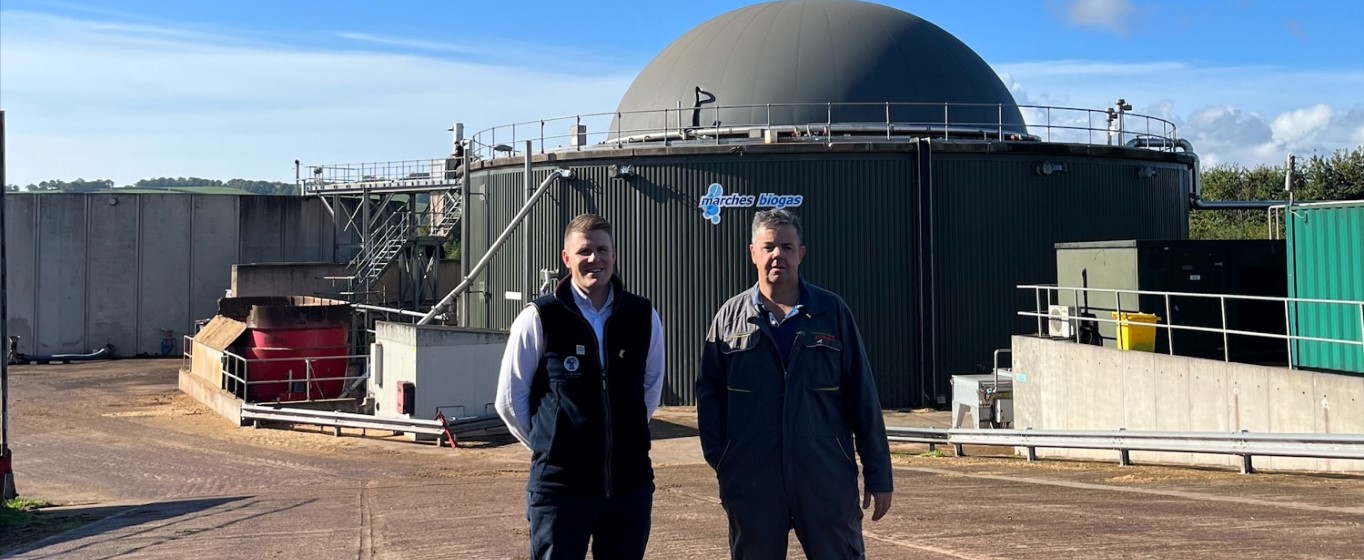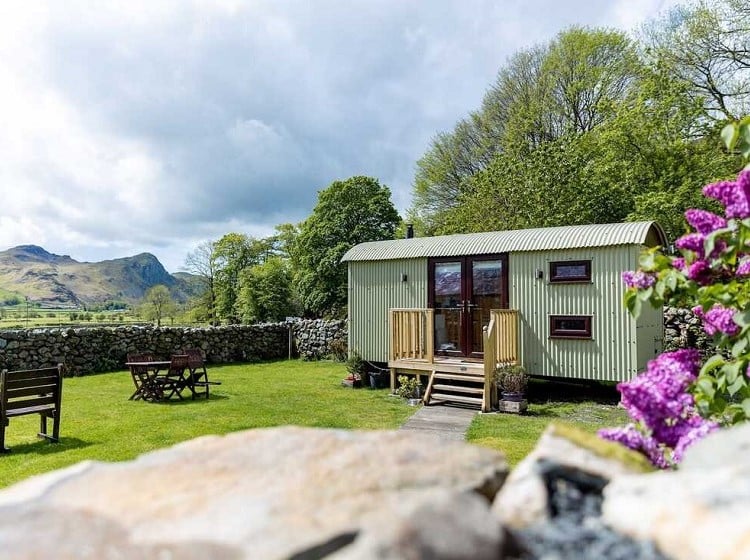Tiverton
Renewable energy farm diversification

Devon farmers Johnny and Clare Clapp have invested in renewable energy, running an anaerobic digester, solar energy and ground source heat to complement their farming activities.
Their farm, a couple of miles from Tiverton in Mid Devon, runs to 1,100 ha. It’s mostly down to a mix of arable crops including wheat, barley, oats and rye, maize, lupins and triticale.
Clare runs a prize-winning 50 head of pedigree Charolais beef herd.
The couple produce livestock feeds for sale from grass and lucerne. They use energy produced by the farm’s own renewables to dry crops, which are processed into high-quality animal feed for dairy and beef farms. Their latest innovation is dried grass pellets.
The farm’s anaerobic digester was originally run by an outside company when it was installed in 2017. Two years later they bought the plant themselves to fully integrate it with their farming and energy operations.
Fuelled by a mixture of whole crop and the farm’s maize crops, the digester uses the fermentation process to break down organic matter and can produce 1,100 KWh. Ground source heat pumps add to the renewable power mix, producing heat to dry crops grown for sale as animal feed.
Diversification on the farm started in 2005 when Johnny and Clare converted its redundant dairy buildings into commercial units. Solar panels on the buildings’ roofs now generate up to 30KWh of electricity – mostly used by tenants.
“We’ve steadily made the farm more sustainable by introducing diversification enterprises which complement our farming activities,” said Johnny, who has worked Hartnoll Farm all of his working life.
“Having an income from commercial letting and renewables complements the farming side of our business so when arable prices are down there’s a good chance that our lettings and renewables income will help balance the books.
“Diversifying into the industrial estate created capital to invest in the farming side, and our involvement in renewables, has enabled us to add real value to the crops we grow and manage.”
Johnny advises farmers to look for diversification activities which fit in with their farming activities and skill sets.
“Be very careful – everyone is seeing electricity prices going up now and dashing to install panels - you do get a good return selling the power you produce. But you must make sure that you have good supply contracts in place and at a price which is sustainable. It’s not always predictable, and to my mind it could still be a risky investment as a stand-alone diversification.
“Developing new opportunities which complement the farming side of the business over the long-term is the way we work.
“One of the major challenges facing farmers planning diversifications is public wariness of renewables – particularly anaerobic digesters as there is a lack of understanding that they are a very ‘green’ way of creating energy.
“It’s a major task to provide factual information to change public perception, and most farmers are too busy running their farms to do it themselves”.
Johnny and Clare work closely with NFU Mutual to protect their farm and diversified businesses.
“It’s all been very simple,” said Johnny, “NFU Mutual understands farming and renewables, so everything is insured with them. When we’re planning a new diversification, we just give our Agent Pete Randerson a call at the Tiverton office, he explains what inspections and maintenance schedules are needed and it’s all quickly sorted.
“Rigorous attention to health and safety and regular maintenance are our top priority, so we’ve always been able to meet the standards required by the insurers.”
Pete Randerson, NFU Mutual Agent for Tiverton works closely with Johnny and Clare to make sure their farm and associated businesses have the right insurance in place.
Pete says, “NFU Mutual not only has expertise in farming, but also a wide range of diversification enterprises and non-farming businesses.
“Johnny and a Clare are a great example the many farmers who are making the most of their land, buildings and location to build sustainable businesses which help support the local economy.
“Living and working in the area means I know many of the local farmers and rural business owners and the challenges they face. This really helps us to provide the right protection for innovative businesses with multiple income streams.”

Many roads to diversification success
With over 110 years supporting the farming community we’ve seen a lot of change, so we understand the importance of diversification to the farming industry.
Our farm diversification articles feature the latest trends, insights and case studies to help UK farmers explore opportunities for the future.